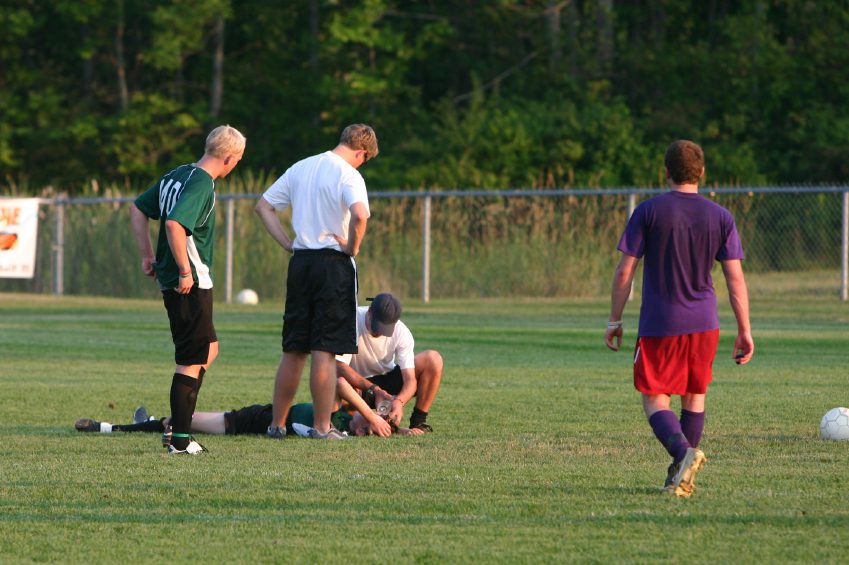If you were to ask parents and athletes “should you immediately remove the athlete from play if you think there may have been a concussion?”, the majority would say, “yes!”.
The big push in the concussion world is to ‘educate’ or ‘bring awareness’ towards concussion. It is human nature; however, especially in the adolescent and teenager groups, to ignore the long-term consequences of our actions and to believe that “nothing bad will happen to me”. This is why despite the widespread education and awareness surrounding topics such as smoking, drinking, and poor dietary habits people still choose to make unhealthy choices.
So, how do we get athletes, who are highly motivated to play and be tough, to speak up and report their concussions immediately?
Study of the Month: Recognize Concussion Injuries and Remove
A new study from the journal Pediatrics gives you yet another reason to report your concussion injuries immediately. Dr. Elbin and colleagues examined neurocognitive performance, symptoms, and recovery time between athletes who were immediately removed from play following concussion and athletes who continued to play.
Athletes in both groups were 14 to 16 years old and all measurements were taken at baseline (pre-injury) and within the first week following injury and again within 30 days of the injury.
The group that continued to play took significantly longer to recover than the group that was immediately removed. In fact, if you continued to play after your concussion, you were almost 9 times more likely to have a prolonged recovery (longer than 3 weeks of symptoms). This study demonstrates that not only are you putting your brain at risk for potentially serious or fatal consequences by continuing to play after a concussion, but you are also just putting yourself out of your sport longer.
One of the most common reasons that athletes withhold symptoms is so that they don’t miss playing time. Perhaps we should educate them that by withholding symptoms they are only going to miss more playing time in the long run.
If you’d like to read a copy of the study abstract, please click here.
What is concussion baseline testing and who can it help?

